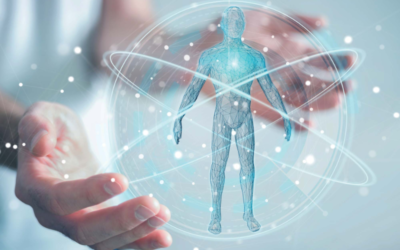We all have to cope with gray hair and wrinkles at some point. But some of the hormone-related symptoms of aging can become problematic as you reach and move through the more senior years of your life.
Women are used to dealing with hormonal shifts in their bodies: they go through puberty and many years of monthly menstrual cycles, eventually experiencing complete cessation of their periods resulting in menopause.
And don’t forget the immense changes that occur during pregnancy.
But what about the years leading up to menopause? What happens then?
Many women begin to notice strange symptoms, such as brain fog, fatigue, irritability and mood swings after age 30. These may be just some of the symptoms of this time in a woman’s life which we refer to as perimenopause (meaning the time around menopause).
Other symptoms may include:
- Hot flashes
- Breast tenderness
- Vaginal dryness and discomfort during sex
- Urine leakage when coughing or sneezing
- Worsening premenstrual syndrome
For a lot of women, the frustration centers around their image—and their weight, plus the inability to lose weight, specifically. For others, it’s sleeping soundly through the night as many women will experience difficulty with falling asleep and/or staying asleep.
But not everyone has to go through these negative changes in their health and happiness. And not all women will–how much you are affected does depend on genes to some degree, as well as your lifestyle and current level of health.
Lifestyle factors that can worsen your chances of experiencing the negative hormonal symptoms of aging include:
- Alcohol consumption
- Smoking
- Poor diet
- A lack of exercise
Stress also plays a vital role. Stress drains your hormones and raises the likelihood that you’ll sleep poorly, gain weight and struggle to lose it, and experience mood swings.
As we age, the female body naturally produces less progesterone, estrogen, and testosterone which are responsible for our brain function, sex drive, and even skin texture.
Because of these drops in hormones, and the symptoms that come along with their decline, some women chose to pursue synthetic hormone replacement therapy (HRT). However, this type of HRT has been deemed to be unsafe, which is why its use is restricted. Only the smallest amount for the shortest amount of time is recommended.
I recommend and use a safer alternative to synthetic hormones called bio-identical hormone replacement therapy.
This type of treatment uses hormones with the same chemical structure as the hormones that are naturally found in our bodies. The hope is that the body will recognize these hormones more efficiently and will be able to use them in precisely the same way. Bio-identical hormones are often taken in transdermal, transvaginal, oral, sublingual, and pellet form. They have been shown to be safer than the substances used in synthetic hormone replacement therapies.
However, before you consider taking bio-identical hormones, or any other type of HRT, to alleviate the symptoms associated with aging and menopause, caution must be taken.
Be sure to work with a doctor that is well-schooled in this type of therapy. Get baseline blood and/or urine and saliva tests to evaluate your body’s natural hormone levels, and make sure you get all your hormone levels tested regularly if undergoing HRT of any kind. Hormones work together in your body and they are in a delicate balance, therefore all hormones including adrenals and thyroid should be checked.
Doctors should also advise you on appropriate lifestyle changes to support your body’s natural ability to produce and synthesize hormones and this should be your first-line treatment.
Certain types of hormone problems can point to nutrient deficiencies, so make sure you’re getting enough of everything you need. Particularly important nutrients are magnesium, vitamin D, B-vitamins, selenium, iron and zinc.
So, what’s the key to moving into the second half of your life?
Taking good care of yourself, and seeking out help to make sure you can keep your hormone levels as balanced as they can be so that you can sleep better, move without pain, eat without gaining weight and feel energized and ready to begin your day each morning.
Keep reading the blogs as I’ll continue to post helpful tips on how to accomplish all of this and more.
I welcome comments and suggestions on topics you’d like to hear more about.
Get in touch by responding to this post below!





0 Comments